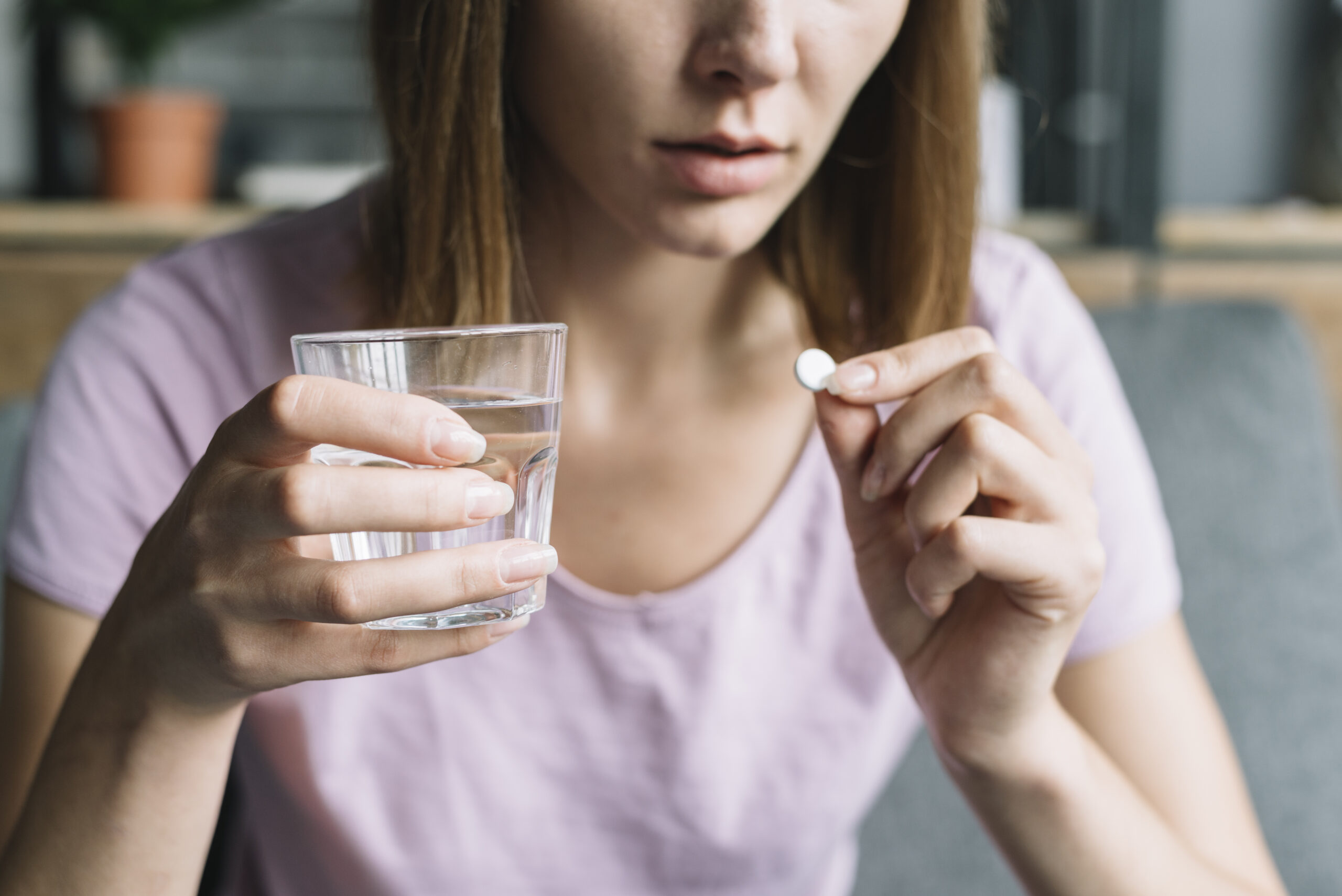
What Are Opioids?
Opioids are drugs that include both legal prescription medications and illegal substances. Medically, opioids are prescribed to relieve moderate to severe pain, often after surgeries, injuries, or in cases of chronic conditions like cancer.
Common prescription opioids include oxycodone (OxyContin), hydrocodone (Vicodin), morphine, and codeine.
In addition to these, illegal drugs such as heroin and powerful synthetic opioids like fentanyl also fall into the opioid category.
Opiates refer specifically to naturally occurring opioids derived from the opium poppy, like morphine and codeine, while the term opioids covers all drugs — natural, synthetic, and semi-synthetic — that act on opioid receptors in the brain.
When a person uses opioids, the drugs bind to specific receptors in the brain and also throughout the nervous system, blocking pain signals and releasing large amounts of dopamine.
This creates feelings of intense euphoria, relaxation, and pleasure.
However, with repeated use, the brain’s natural dopamine production decreases, making it harder for individuals to feel good without the drug.
This cycle of pleasure and withdrawal makes opioids highly addictive and dangerous, especially when misused.
Whether the addiction stems from prescription medications or illegal substances like heroin or fentanyl, the effects on the body and mind can be devastating without professional help.
To learn more about the dangers of misusing prescription medications, visit our guide on Prescription Drug Addiction.
At Tulip Hill Recovery, our opioid addiction treatment in Murfreesboro, TN, addresses every aspect of this powerful disease, helping individuals heal physically, mentally, and emotionally.

How Opioid Addiction Develops
Opioid addiction rarely begins with the intention to misuse drugs.
For many people, it starts with a legitimate prescription for pain relief after surgery, injury, or a chronic health condition. However, because opioids flood the brain with dopamine and create intense feelings of pleasure and calm, even prescribed use can quickly lead to dependency if not carefully managed.
When someone uses opioids repeatedly, the brain adapts by reducing its natural production of dopamine.
Over time, the body will start to need higher doses to achieve the same effect — a phenomenon known as tolerance.
As tolerance builds, individuals may begin taking more opioids than prescribed, using them more frequently, or seeking stronger drugs like heroin or illicit fentanyl. This escalating pattern is often the first step toward opioid addiction.
Several factors increase a person’s chances of developing an opioid use disorder:
- Genetics: A family history of substance misuse can make individuals more vulnerable to addiction.
- Trauma: Experiences like physical, emotional, or sexual abuse, especially during childhood, can lead individuals to self-medicate emotional pain with opioids.
- Mental Health Disorders: Conditions like anxiety, depression, PTSD, and ADHD are closely linked to a higher risk of opioid misuse.
- Overprescription: Receiving high doses of opioids for extended periods, even under medical supervision, significantly raises the risk of dependence and opioid abuse.
Once dependence takes hold, opioid addiction becomes a chronic, relapsing disease that requires professional intervention to overcome.
At Tulip Hill Recovery, our opioid addiction treatment in Murfreesboro, TN, is designed to break this cycle and help individuals rebuild their lives with lasting support and care.
Signs and Symptoms of Opioid Addiction
Recognizing the signs of opioid addiction early on can make a critical difference in getting the right help.
Addiction often affects every aspect of a person’s life — emotionally, physically, and socially — and these changes usually become more obvious over time.
Behavioral Signs
- Doctor shopping to obtain multiple prescriptions
- Stealing or borrowing medications from others
- Neglecting responsibilities at work, school, or home
- Risky behaviors like driving under the influence
- Secrecy and isolation to hide substance use
Emotional and Mental Signs
- Mood swings ranging from euphoria to irritability or depression
- Anxiety and paranoia when opioids are not available
- Loss of motivation and declining interest in activities once enjoyed
- Increased irritability and defensive behavior when confronted
Physical Signs
- Noticeable weight loss and changes in appetite
- Constricted (pinpoint) pupils
- Frequent drowsiness or falling asleep at inappropriate times
- Poor hygiene and changes in physical appearance
- Slurred speech and impaired coordination
As opioid addiction worsens, its impact spreads to every part of life.
Personal relationships often suffer, with family members and friends noticing the individual becoming distant, dishonest, or unreliable.
Job performance declines, financial troubles emerge, and health deteriorates, often pushing individuals into deeper isolation and desperation.
Many individuals battling opioid addiction also experience underlying mental health conditions, which can intensify the cycle of substance use.
If you suspect co-occurring disorders are involved, it’s important to seek specialized care.
Discover how we address both addiction and mental health at our Dual Diagnosis Treatment Centers in Murfreesboro, TN.
At Tulip Hill Recovery, our compassionate team understands how complex opioid addiction can be — and we’re here to provide the personalized care needed for true, lasting recovery.
Dangers and Long-Term Effects of Opioid Abuse
While opioid use may initially bring feelings of relief or euphoria, opioid abuse quickly leads to dangerous — and sometimes fatal — consequences. Over time, both the body and mind are severely impacted, making professional treatment not just important, but absolutely necessary.
Physical Effects of Opioid Abuse
One of the risks of long-term opioid use is respiratory depression.
Opioids slow breathing by acting on brain centers that control respiration. In cases of overdose, breathing can slow dangerously or stop altogether, leading to brain damage, coma, or death.
Other physical consequences of prolonged opioid abuse include:
- Chronic constipation and gastrointestinal issues
- Liver and kidney damage due to the body’s ongoing effort to filter toxins
- Increased risk of infectious diseases, including HIV and hepatitis (especially if opioids are injected)
- Hormonal imbalances leading to problems like infertility
The risk of overdose becomes even higher when opioids are combined with other substances like benzodiazepines, alcohol, or other depressants.
To learn more about these heightened dangers, visit our resource on Combining Opioids and Alcohol: Dangers and Risks.
Mental Health and Social Consequences
The emotional toll of opioid abuse can be just as devastating as the physical effects:
- Depression, anxiety, and mood instability often worsen with prolonged use.
- Cognitive decline can impair memory, decision-making, and the ability to focus.
- Social isolation becomes common as relationships are strained or lost.
- Financial hardship and legal issues often follow, especially if opioid use leads to job loss, criminal activity, or mounting debt.
Ultimately, opioid addiction often leaves individuals feeling trapped — physically dependent, emotionally broken, and isolated from the support systems they need most.
At Tulip Hill Recovery, our opioid addiction treatment in Murfreesboro, TN, is designed to address all of these issues with comprehensive, compassionate care, helping individuals rebuild their health, their relationships, and their future.

Understanding Opioid Withdrawal
When someone who’s been using opioids regularly tries to stop, their body and brain struggle to adjust to the drug’s sudden absence.
This results in opioid withdrawal, a difficult and often painful process that can make quitting feel overwhelming without professional help.
Timeline of Opioid Withdrawal
While the exact withdrawal timeline can vary depending on the specific opioid used, the length of use, and the individual’s overall health, a general pattern often looks like this:
- 6–12 hours after the last dose: Early symptoms begin, especially for short-acting opioids like heroin.
- Anxiety, muscle aches, sweating, and restlessness start to appear.
- 1–3 days after the last dose: Symptoms will peak.
- Intense cravings, nausea, vomiting, diarrhea, abdominal cramping, and chills are common.
- 4–7 days after the last dose: Physical symptoms gradually begin to subside, although emotional symptoms often remain strong.
- Several weeks or longer: Lingering symptoms like depression, anxiety, irritability, and sleep disturbances can persist without proper treatment and support.
Common Symptoms of Opioid Withdrawal
- Severe cravings for opioids
- Muscle aches and body pain
- Nausea, vomiting, and diarrhea
- Anxiety and agitation
- Insomnia and sleep disturbances
- Sweating, chills, and goosebumps
- Increased heart rate and blood pressure
- Depression and emotional volatility
Although opioid withdrawal is rarely life-threatening on its own, it can be extremely uncomfortable and dangerous because of the high risk of relapse.
Many individuals return to opioid use just to escape the intense withdrawal symptoms — a cycle that can quickly lead to overdose, especially if tolerance has decreased.
For a broader look at how quickly dependence on substances can develop, you can explore our related article: How Long Does It Take to Get Addicted to Alcohol?.
Why Medical Support Matters
Supervised detox is the safest and most effective way to manage opioid withdrawal.
At Tulip Hill Recovery, we offer medically supervised detox services as part of our opioid addiction treatment in Murfreesboro, TN, ensuring that clients are safe, supported, and given relief from the worst of their symptoms.
Medical supervision can also address dehydration, heart issues, mental health crises, and other complications that may arise during the withdrawal process.
With the right care, it’s possible to get through withdrawal safely and move forward into lasting recovery.
A Supportive Community
One of the most powerful aspects of our opiate rehab center in Nashville is the sense of community it fosters. Recovery can be an isolating experience, but at Live Again Detox, individuals are surrounded by people who genuinely understand what they’re going through.
We encourage building connections with others in recovery, creating a network of support that can help sustain individuals long after they’ve left our facility. This supportive community is a key ingredient to successful recovery, providing strength through shared experiences and encouragement to continue moving forward.
Aftercare for Sustained Recovery
Recovery is a journey that continues long after leaving rehab for opioid addiction. The transition back to everyday life can be challenging, and ongoing support is crucial for maintaining sobriety. That’s why we offer comprehensive aftercare services to help individuals navigate this critical phase of their recovery.
Our aftercare program includes:
- Regular follow-up sessions
- Continued therapy as needed
- Access to support groups and alumni programs
- Assistance with employment, housing, and education when needed
- Relapse prevention planning and skills
This ongoing support helps reinforce the tools and strategies learned during opiate addiction treatment, giving individuals the best chance at maintaining their sobriety in the long run.
Why Medication-Assisted Treatment (MAT) is Important
Medication-Assisted Treatment (MAT) is one of the most effective and evidence-based approaches to opioid addiction treatment.
It combines FDA-approved medications with counseling and behavioral therapy to treat the whole person, not just the addiction.
MAT helps stabilize individuals during detox, manage withdrawal symptoms, reduce cravings, and create a smoother path toward long-term recovery.
How MAT Helps During Detox and Early Recovery
Withdrawal from opioid dependence can be physically and emotionally overwhelming. MAT provides critical support during this vulnerable phase by:
- Easing withdrawal symptoms such as cravings, pain, nausea, and anxiety
- Reducing the risk of relapse, especially during the early weeks of sobriety
- Restoring chemical balance in the brain, helping individuals feel more stable and focused
- Letting clients engage more fully in therapy and recovery work without the distraction of intense physical symptoms
By reducing the discomfort of cravings and withdrawal, MAT gives individuals the foundation they need to rebuild their lives safely and sustainably.
Common Medications Used in MAT for Opioid Addiction
- Suboxone (buprenorphine and naloxone): Buprenorphine partially activates opioid receptors, reducing cravings without producing the full high associated with opioids. Naloxone discourages misuse.
- Methadone: A long-acting opioid agonist that lessens cravings and symptoms of withdrawal by occupying the same receptors in the brain but without the intense euphoria of drugs like heroin or fentanyl.
- Naltrexone (Vivitrol): An opioid antagonist that works to block the effects of opioids entirely, helping prevent relapse after detox is complete.
Each medication is carefully chosen based on a client’s specific needs, substance use history, and recovery goals, and is always combined with therapy and holistic care for maximum effectiveness.
Debunking Myths About MAT
Despite its success, there are still many myths about MAT, including the idea that it “just replaces one drug with another.” This is simply not true.
When used properly under medical supervision, MAT:
- Supports recovery rather than sustaining addiction
- Stabilizes brain chemistry disrupted by long-term opioid abuse
- Helps people regain control of their lives, relationships, and goals
MAT is not a shortcut or a crutch — it’s a powerful, life-saving tool that many individuals need as part of their opioid addiction treatments.
At Tulip Hill Recovery, our comprehensive opioid addiction treatment in Murfreesboro, TN, includes MAT as an option for those who can benefit from it. Our goal is to meet each client where they are and provide the medical and emotional support necessary for lasting recovery from opioid addiction.
If you’re searching for compassionate, effective opioid addiction treatment, we are here to help you every step of the way.
Treatment Options for Opioid Addiction at Tulip Hill Recovery
At Tulip Hill Recovery, we believe that every individual deserves a personalized path to healing.
That’s why our opioid addiction treatment in Murfreesboro, TN, offers a full continuum of care — from medical detox through outpatient support — tailored to meet each client’s unique needs.
Our programs address not just the physical dependence, but the emotional, behavioral, and mental health aspects of opioid addiction recovery.
Detox for Opioid Addiction
The first critical step in treating opioid addiction is completing a detox for opioid addiction under medical supervision.
Withdrawal symptoms can be severe and even dangerous without the right support.
A structured, medically managed detox program helps individuals safely clear opioids from their system while minimizing discomfort and health risks.
Our opioid detox services include:
- 24/7 medical monitoring
- Symptom management with or without the use of Medication-Assisted Treatment (MAT)
- Emotional support to reduce anxiety and depression during withdrawal
- Preparation for entry into the next level of treatment
Detox alone isn’t enough to sustain long-term recovery, but it lays the foundation for the healing process to begin.
Learn more about the additional addiction services we offer by visiting our page on Drug Addiction Treatment in Murfreesboro, TN.
Partial Hospitalization Program (PHP) for Opioid Addiction
After completing detox, many clients move into our Partial Hospitalization Program (PHP) for intensive day treatment.
PHP is ideal for post-detox stabilization and provides:
- Structured therapy sessions five days a week
- Daily individual and group counseling
- Psychiatric care and medication management
- Life skills training and relapse prevention planning
This level of care allows clients to focus fully on their treatment for opioid addiction while still returning home or to a sober living environment at night.
PHP strengthens emotional regulation, builds resilience, and provides critical tools for maintaining opioid addiction recovery.
Intensive Outpatient Program (IOP) for Opioid Addiction
Once clients have stabilized through PHP, many transition into our Intensive Outpatient Program (IOP) to continue progress while reintegrating into everyday life.
IOP provides:
- Therapy three to five days per week for a few hours each day
- Flexibility to work, attend school, or care for family
- Ongoing relapse prevention and peer support
Balancing recovery with daily responsibilities is a critical milestone on the journey to independent, sustained sobriety.
Individual, Group, and Family Therapy
Therapy is at the heart of lasting recovery at Tulip Hill Recovery. We offer:
- Individual Therapy: Personalized sessions to uncover underlying issues, triggers, and emotional patterns.
- Group Therapy: Building community, sharing experiences, and learning from others on the same journey.
- Family Therapy: Healing broken relationships, improving communication, and strengthening the family support system.
Topics covered include:
- Coping strategies for cravings and stress
- Emotional regulation techniques
- Building healthy relationships and boundaries
- Planning for relapse prevention and future challenges
Holistic Therapies for Opioid Recovery
We believe in treating the whole person, not just the addiction. Our holistic therapies complement traditional treatments by promoting physical, emotional, and spiritual healing:
- Mindfulness and Meditation: Training the mind to stay present and manage anxiety.
- Yoga and Movement Therapy: Reconnecting with the body and releasing built-up stress.
- Art Therapy: Expressing emotions in a creative, healing way.
- Equine Therapy: Developing trust, communication skills, and self-esteem through working with horses.
By addressing every layer of recovery — mind, body, and spirit — we help our clients build a stronger, healthier foundation for lasting sobriety.
Our Approach to Opioid Addiction Recovery
At Tulip Hill Recovery, we believe that no two individuals experience addiction the same way, and that’s why a one-size-fits-all approach to treatment simply doesn’t work.
Our opioid addiction treatment in Murfreesboro, TN, is built on the foundation of personalized care, addressing each client’s unique history, needs, and goals.
Personalized Treatment Plans
From the moment a client begins their journey with us, we create a customized treatment plan tailored to their specific challenges and strengths.
We consider factors such as:
- Type and duration of opioid use
- Physical and mental health conditions
- Trauma history
- Family dynamics and support systems
Every element of our opiate addiction rehab program is designed to meet the client where they are — and help them move forward with confidence.
Dual Diagnosis Focus
Many people who struggle with opioid addiction are also battling underlying mental health disorders like depression, anxiety, PTSD, or bipolar disorder.
At Tulip Hill Recovery, we specialize in dual diagnosis care, meaning we treat both the substance use disorder and the mental condition simultaneously.
This integrated approach increases the likelihood of successful, long-term recovery by healing the whole person, not just addressing surface symptoms.
By combining evidence-based therapies for both addiction and mental health, our opiate addiction treatment program helps clients build resilience, develop healthier coping mechanisms, and restore emotional balance.
Family Involvement in the Healing Process
Addiction doesn’t just affect the individual — it impacts entire families.
That’s why our opiate addiction rehabilitation approach encourages family participation whenever possible.
Through family therapy sessions, education, and support, we help loved ones:
- Understand the nature of opioid addiction
- Rebuild trust and communication
- Learn how to support recovery without enabling harmful behaviors
Healing family relationships strengthens the support network clients need to maintain sobriety once they complete treatment.
At Tulip Hill Recovery, we’re committed to providing compassionate, comprehensive care that empowers clients — and their families — to reclaim their lives from opioid addiction.
Begin Your Journey: Opioid Addiction Treatment in Murfreesboro, TN
If you or a loved one is struggling with opioid addiction, you don’t have to face it alone. At Tulip Hill Recovery, we provide trusted, effective opioid addiction treatment in Murfreesboro, TN, offering a full range of programs to meet individuals at every stage of the recovery process.
Whether you need medically supervised detox, a structured opioid rehab program, or long-term support for dual diagnosis needs, we’re here to guide you.
Our personalized treatment plans, holistic therapies, and family-centered care ensure that healing happens not just physically, but emotionally and mentally as well.
Hope, healing, and a fresh start are possible.
Take the first step today with Tulip Hill Recovery — your trusted resource for treatment options for opioid addiction in Murfreesboro and beyond.
Frequently Asked Questions
What is opiate rehab, and how does it differ from detox?
Opiate rehab encompasses the entire treatment process, including detox, therapy, and aftercare. Detox is just the first step that focuses on safely removing opiates from the body. Comprehensive rehab addresses the underlying causes of addiction and teaches coping skills for long-term recovery.
How long does opiate addiction treatment last?
Treatment duration varies based on individual needs, typically ranging from 30 to 90 days for residential programs. Outpatient treatment may continue for several months. Recovery is a lifelong journey, and we provide the tools and support needed for sustained sobriety.
Does insurance cover opiate addiction treatment?
Many insurance providers offer coverage for drug rehab and mental health services. The Mental Health Parity and Addiction Equity Act requires insurance plans that cover mental health or substance use disorders to provide benefits comparable to medical/surgical coverage. Our admissions team can help verify your insurance benefits and explain potential out-of-pocket expenses.
How does Live Again Detox address co-occurring mental health disorders?
Our dual diagnosis treatment approach addresses both addiction and mental health issues simultaneously. We understand that many individuals struggling with opiate addiction also experience anxiety, depression, PTSD, or other mental health conditions. Our comprehensive treatment plans incorporate therapies specifically designed to address these co-occurring disorders.
Take the first step toward freedom from opiate addiction today. Recovery is possible, and we are here to help every step of the way.
Similar Links







 Call Us
Call Us
 877-845-8192
877-845-8192